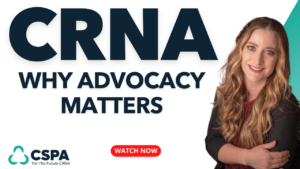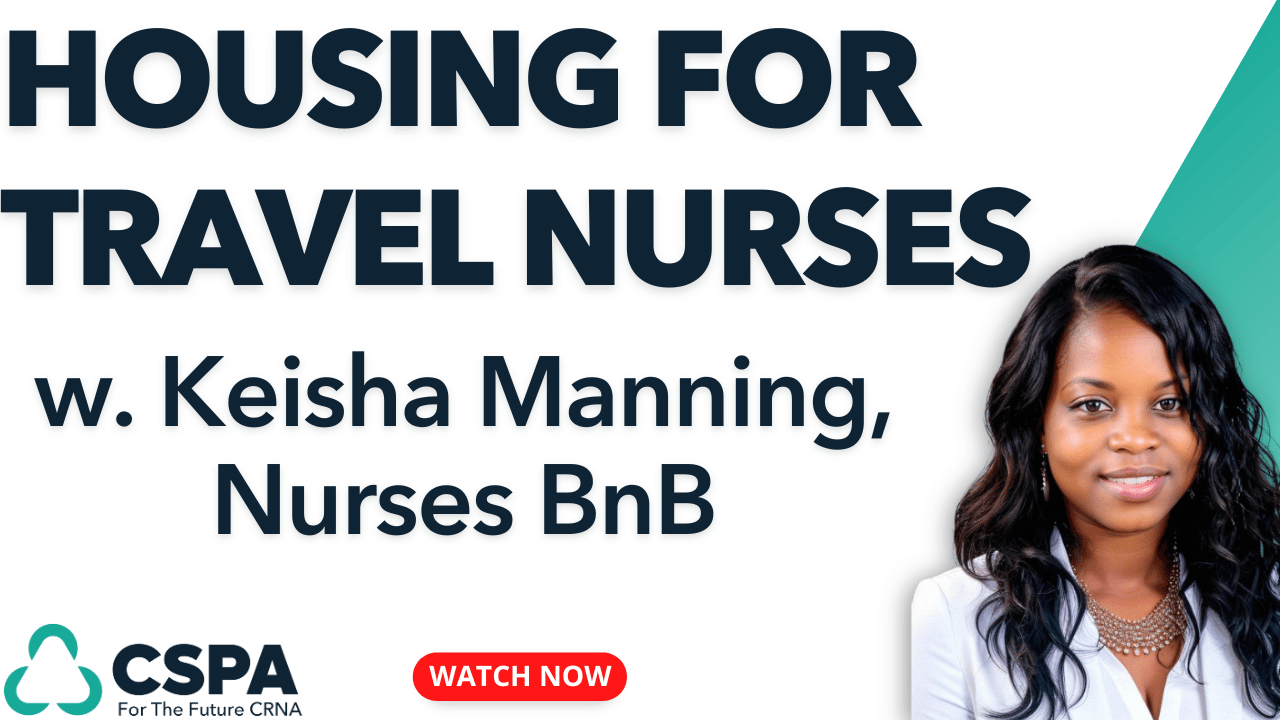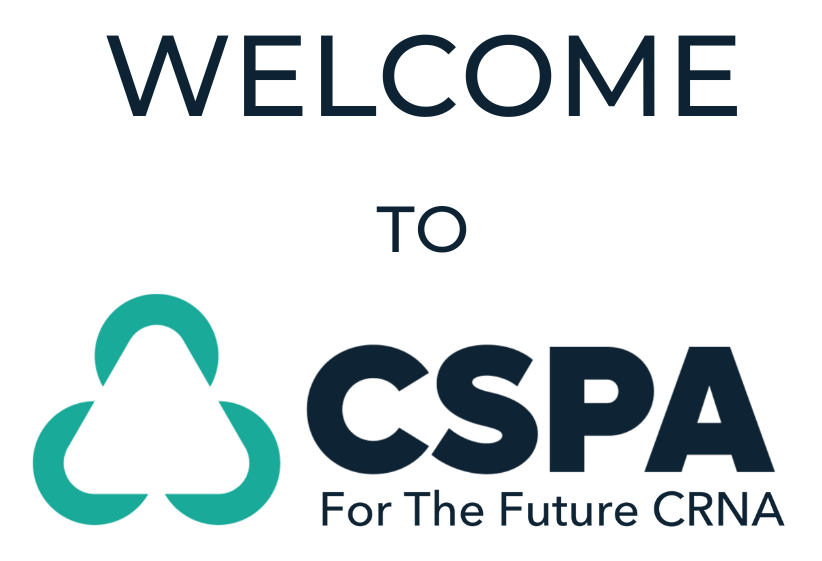Get Your Free CRNA School Interview Prep Guide
Free CRNA School Interview Prep Guide Click Here
Advocacy for CRNAs is crucial, and is at the heart of being a Nurse Anesthetist. It’s something that everyone should understand before they embark on the journey. There is no better person to talk about this than Dr. Angela Mund DNP, CRNA. Dr. Mund is the President of the American Association of Nurse Anesthesiology or AANA. She has had over 20 years of advocacy for this profession. In this episode, she talks about the importance of mentorship as a way of paying it forward to future professionals in the field, how CRNAs can become effective advocates for their profession, and how students can participate in the AANA. Tune in for more valuable insights!
Get access to planning tools, mock interviews, valuable CRNA Faculty guidance, and mapped-out courses that have been proven to accelerate your CRNA success! Become a member of CRNA School Prep Academy here!
https://www.crnaschoolprepacademy.com/join
Book a mock interview, personal statement critique, resume review and more at https://www.TeachRN.com
Join the CSPA email list here! https://www.cspaedu.com/podcast-email
Send Jenny an email or make a podcast request!
Hello@CRNASchoolPrepAcademy.com
Legal Case Minnesota Association of Nurse Anesthetists v. Unity Hospital: https://law.justia.com/cases/federal/district-courts/FSupp2/5/694/2341301/
—
Watch the episode here
Listen to the podcast here
Why Advocacy Is Important As A CRNA With AANA President Dr. Angela Mund DNP, CRNA
What does advocacy for CRNAs look like? Many of you who are pursuing CRNA know that advocacy is important, but what does it actually look like to be an advocate, not only as an ICU nurse but as you transition into the role of being a CRNA? Many of you know that CRNA schools are looking for these types of roles through leadership.
In this episode, we’re going to reveal what it means to be an advocate, both as an ICU nurse and as you transition into your role of being a CRNA. In this episode, I have brought you a very special guest, someone who has over twenty years of being an advocate for the CRNA profession, Dr. Angela Mund. She received her certificate in Nurse Anesthesia from the Minneapolis Veterans Affairs School of Nurse Anesthesia in 1998.
She graduated from the University of Minnesota with a Master of Science degree in 1999, and a Doctor of Nursing Practice in 2008. She has been very active in nurse anesthesiology for over twenty years, including serving as the president of the Association of Veterans of Nurse Anesthetists, president of the South Carolina Association of Nurse Anesthetists, as well as several AANA committees.
Currently, Dr. Mund is Chair of the Department of Clinical Sciences at the Medical University of South Carolina, a leading team of faculty staff from physician assistants, nurse anesthesia, cardiovascular perfusion, healthcare studies, and genetic counseling programs. Her areas of scholarship are healthcare policy and cardiovascular anesthesia. Dr. Mund is also the President of the American Association of Nurse Anesthesiology. I’m excited to have her on the show. Let’s give her a warm welcome and let’s get into our episode.
—
Welcome, Dr. Angela Mund to the show. I’m so excited to have you here.
I am so grateful to have the opportunity to talk about one of my absolute favorite topics. It’s a pleasure to be here.
Thank you very much and I’m so excited about this episode. It’s going to be important as you embark on your journey to becoming a CRNA. I know many of you are wondering what it is going to be like as you transition into the role of a CRNA. Advocacy is at the heart of being a CRNA and there’s no better person to come on this platform and discuss this topic with you. Dr. Angela Mund has had over twenty years of advocacy for this profession. I would love to get into it and talk about how the advocacy role of an ICU nurse differs from that of a CRNA.
The first thing to keep in mind is that we have such a narrow definition of advocacy that it’s only political advocacy and only on the Federal stage. In reality, you’ve been advocating for patients every single day of your career in the ICU. That’s what makes nurses such great advocates on a bigger stage. We’ve been advocating for patient-to-staff ratios.
We’re advocating with physicians on how our patients should be managed. We are used to the art of negotiation. We do that all the time. Sometimes, in nursing, especially as they come into an advanced practice role, including nurse anesthetist, we start to think about, “I’ve never done it before. I’m concerned about it.” You’ve been doing it every day of your life.
All I think about is in the ICU, it is often on a smaller scale. It might be localized to your facility or if you have a chapter where you work in nursing. Once you get into nurse anesthesia, just like what Jenny said, nurse anesthetist has been advocating for a long time for our profession, our patients, and healthcare in general. How I take a look at it is you’ve been here and you’ve been down at the base part. Now what we’ll be doing in nurse anesthesia is bringing it here on a bigger stage. You’ve been preparing for this your whole career, in my opinion.
I love that. I hope that gives those of you here the encouragement and reassurance that you are exactly where you need to be. Many ICU nurses are somewhat intimidated by becoming a CRNA because they see it as such a much bigger role and more responsibility. In reality, you’ve been doing this the entire time. Your ICU work has prepared you to take this stage. Owning that aspect of your experience and bringing it to the role of a CRNA is key. Thank you. That’s great. How does the professional role of an ICU nurse then differ from the professional role of being a CRNA? Do you have any insight on that?
As far as differences, I’m not sure it has to differ. I once saw a quote. My program director at the University of Minnesota had a quote on her computer. I can’t remember who it was from but it said, “Nurse anesthesia is like ICU nursing on steroids.” What it is, is it’s bigger, more engaged, and a lot more knowledgeable. When you’re in an anesthesia program, we are preparing you to meet those roles, or your program should be preparing you to be an advocate. By the time you graduate, you should have some experience under your belt.
You should have the knowledge to assume those roles, but you’ve already started it and now you’re just going to take it to a much larger stage and more knowledgeable level. I think that is it. Otherwise, I’ll put the last couple of questions that Jenny had. The part that should hit home is the reason why we want you to have ICU experience is so that you are ready to meet these roles. If we didn’t think that you had the professional wherewithal and the professional engagement in your ICU, you’re not going to get into a nurse anesthesia program. ICUs are to prepare you, not just clinically.
I love how you mentioned the knowledge aspect because I hear time and time again from students who start their CRNA journey that after about a few months in the school, they thought they were at the top of their game. They thought they knew they had all this knowledge as an ICU nurse with all the experience. When they get into CRNA school, they’re like, “This is a humbling experience. Now I realize how much I didn’t know and how much more there is to know.” It’s a period of growth. Sometimes growth can make you feel uncomfortable. It’s probably the best way to describe it or sometimes even painful, but CRNA school is a period of growth.
It’s insidious in the sense that you don’t even know what’s happening. At least I know that’s how it felt for me. It was like that when I got to the end of my journey as a student. I look back and I was like, “Did I really do that?” It’s an amazing feeling to get to the end of your experience and realize how far you’ve come. For those of you who are just starting off and haven’t even gained acceptance yet, know that this is a journey of several years to get to the endpoint. Don’t worry about not being where you wish to be because part of the process is allowing yourself to fit into the role of, “I’m a newbie again. I’m a new learner.” That’s a great insight. Thank you.

Advocacy: Don’t worry about not being where you wish to be because that’s part of the process is allowing yourself to fit into the role.
It’s fun to hear from graduates, “I have had so much growth.” I have to say, as a program director, one of my favorite parts of being a program director is when one of our nurse anesthesia residents gets through. They graduate and they reflect back and go, “I have grown as a clinician, a person, and as a professional.” That’s why faculty do it. Your comment was every single program director loves to hear that, so thank you for mentioning that.
Growing Into The CRNA Role
You’re welcome. It’s true. The most beautiful thing is to see a person evolve. I love how you mentioned the personal aspect of it too because a lot of people think, “I’m going to get all this critical care knowledge and anesthesia knowledge.” It’s really personal growth because you are tested in a sense that time management obviously, but also the interpersonal skills that you develop by working in the operating room.
It’s one of those things that you don’t realize maybe where you are starting off when you’re done with school. Even now, after eight years of practicing CRNA, I have something to learn every day in the OR through interpersonal skills and communication. That bleeds into your personal life with your family and friends.
It’s rewarding in the sense that your career path can make you grow as an overall person, not just as a clinician. It’s a beautiful and rewarding career path for that reason too. What would you say an ICU nurse can do somewhat professionally? I’m sure everyone is wondering, “What can I do right now, Jenny, to better myself so I can grow into the advocacy role that I desire to be as a CRNA?”
There are a few things. What has changed over time in a lot of nurse anesthesia programs is how we take a look at every applicant in a very holistic view. It isn’t just GPA anymore. For programs using GRE, which ours does in order to lift people up who maybe their GPA isn’t so great, we take a look at everything. For example, some of the things that we look at in the program where I was the program director is we take a look at things like English as a second language. Do you speak another language? Showing that you use the right brain and left brain. On that scale, do you play a musical instrument? Did you play college sports? All of those things, we look at holistically when you’re applying.
As it ties to the profession, we take a look at, “Have you taken that extra step to assume leadership positions? Do you work charge?” When you work charge, make sure that when you interview that you do articulate what that role means, and how that will set you up for your future. Do you mentor others? It’s incredibly important because that’s what an advocate is. I can tell you about my mentors in advocacy that play such an important role. It’s the same as clinical mentors do, and you do that with others. That lets you know that you have an interest in moving other people forward with you.
Do you engage with the external community so that you get the word out about what nursing is and what an ICU nurse is? That’s what we do in nurse anesthesia also. Do you have a diversity of experiences and people that you engage with? That’s incredibly important. Number one, be engaged in a lot of different things, and you’ll be surprised how many of them actually work very well when you assume the role of an advocate as a CRNA.
The other thing that is critically important that nursing doesn’t do as well is viral scanning. What is going on in the world external to you? Where do you get your news? Do you do something other than Facebook? Do you read what’s in the media? What’s going on in healthcare both nationally and globally? Can you articulate the challenges of healthcare in the United States, and the role of nursing in those challenges? It is so that when you have a conversation with faculty, especially if you go to a program that has faculty heavily engaged in advocacy, you’re able to have that conversation not just on a superficial level, but on a very deep level.
Not that it has to be on a nurse anesthesia level or about nurse anesthesia, but about healthcare and nursing. It’s incredibly important to know what’s going on in the world around you. That will elevate you as you transition from ICU to CRNA. Quite frankly, once you do it, you’re going to find that that piece is fun and exciting. That’s going to draw you in more to this role. Know what’s going on in the world around you.
What’s unique about knowing what’s going on is it allows you to figure out what your place is within your community and how you can help. A lot of that has to do with what you’re passionate about. You’re naturally going to be drawn towards certain things. That’s important to pay attention to, especially early on, even as an ICU nurse because that will then spill into your time as a CRNA maybe in different ways, but reading professional journals, not just the social media world, but knowing from a national viewpoint, whether it’s the AACN or others.
I share the AANA journal with our students inside of CRNA School Prep Academy because I want them to be involved in the community, and see what we’re going through and what our struggles are, so they can get an idea in comparison to what the ICU nurses are equally fighting for. A lot of it does tend to mold together in a certain way, but they are different too. That’s definitely a unique piece that most people don’t talk about, so thank you for sharing that.
Equally so, you mentioned many other amazing points as far as if you’re a charge nurse, understand what that role is and why you are doing it. Why did you pick that role for yourself? How do you see yourself serving and showing up for your fellow ICU nurses? Not just, “I’m a charge nurse, period.” It’s the same thing with being a mentor. Why does mentorship mean a lot to you? That’s actually a question I’ve had to ask myself a lot because I didn’t know I was going to fall into the role that I’m in now.
A lot of it stems from my own childhood, struggles, feeling lost, alone, scared, and not knowing who to turn to, and who to ask questions. When I did find a friend, a mentor, or a peer that would give me some guidance, it meant the world to me. For you, as a professional to be that person that can lift someone else up… I’m not sure where the story originated, but have you ever heard of the boy on the ocean shore who was picking up starfish? He was walking down the sea bank and he was throwing starfish after starfish back into the ocean.
An old man was walking up the other direction and saw this little boy one at a time chucking the starfish back into the ocean. There were thousands of them. If they all washed up, they’re going to die. The old man was like, “Boy, you’re wasting your time. You’re never going to be able to save them all.” The boy was like, “I’m saving this one.” He knew he was making a difference for that one starfish.
As a mentor, that’s how I feel. There are so many people who need mentorship, millions. The impact you can make on that one person will have a domino effect. That’s why mentorship is powerful because usually when you pay it forward for one person, they then have that in their heart and they will pay it forward for someone else. It has this big trickle effect. It’s an amazing thing to strive for in your career path. Thank you for sharing all that.
Can I add something to that, Jenny? Mentorship is an important thing for me a lot. When I went to nursing school a long time ago, I was in a certificate program at a hospital. It’s a hospital-based program. Neither my program director nor my assistant program director was involved in politics, advocacy, or the AANA. I don’t even know if they were members.
People are always surprised knowing that what I do now is how did I not have that in school. There was a clinical CRNA that I worked with, Gayle Crabtree-Pergoli, at the VA hospital in Minneapolis. She was very involved in the Minnesota lawsuit against a bunch of hospital systems anesthesiologists. If you have not read about it, it is a very important legal case for nurse anesthesia. She got me involved as a student, writing thank yous to CRNAs around the country that had donated to our legal fund. I then went to midyear for the first time as a new grad.
It’s important to have a mentorship when you’re in those stages to introduce you to people that are going to make a difference in your life. I’m almost falling into the role of serving as a regional director for the Association of VA Nurse Anesthetists. When I was there, I met Laura Cohen, who was a CRNA at the VA in New Orleans, who taught me all about advocacy on the Federal scale. I learned so much from our lobbyists through the AANA. If I would not have those opportunities early in my career, I maybe would not be doing what I’m doing now related to advocacy.

Advocacy: It’s important to have a mentorship when you’re on those stages to introduce you to people that are going to make a difference in your life.
I want to thank all the mentors that are out there. For those of you that are transitioning from ICU to CRNA, find mentors because you’re going to find clinical mentors and academic mentors. Find an advocacy professional mentor that will help you on so many different levels. I know they did for me and I am so grateful for that.
That’s so awesome. I love that you shared that. It goes to show that little things like that can alter in a big way and make an impact on your future career and your job satisfaction. Can you mention the case again? I actually want to look this up too and make sure I can link to it.
It’s the Minnesota Association of Nurse Anesthetists and there were two lawsuits. One was a qui tam action, and one was a whistleblower that we did. They ended up settling out of court about ten years after it started. It was an incredibly stressful time to be in anesthesia in Minnesota, and it was against Allina Health. Several anesthesiologists were specifically named as part of the fraud case. If you Google it, it’ll bring up all of the information on it. It’s a pretty interesting case study on whistleblowers for Medicare billing fraud.
Advocacy For CRNAs – The Power Of Your Voice
This has been insightful so far, so thank you. Speaking from your viewpoint, I was wondering, why is advocacy important as they transition from the role of a student resident nurse anesthetist to the role of a CRNA.
I think about it in a few different ways. Number one is we have 59,000 members of the AANA. We have about 63,000 CRNAs in the country. Think about if every single one of them used that voice of nursing to talk about what we do. One of the things that have been a challenge for nursing is using the power of their voice, and you see it in the literature all over the place. It’s how we bring nursing to not say, “I’m just a nurse.”
That is something we’ve got to get ourselves out of and talk about the amazing things that we do. It’s okay to brag about us. Think about if we had everybody out there talking about what you do every day as a clinician. “I took care of five patients today. I made a difference in their lives and the lives of their family. What that does is I’m making a difference in healthcare.”
Learning that piece and transitioning to using that voice is incredibly important. That’s one part. The voice of nursing and the voice of the nurse anesthesia. It’s the power of voice. The other thing that is part of being in advocacy is as an advocate, you give time, money, or both. If you can’t give time, you give money. If you can’t give money, you give time, and you should give both.
Contribute to the political action committees at your state and your national level because those funds open doors for you as a nurse anesthesia resident, and for nurse anesthetists to get into rooms and in front of people to talk about what we do to the people that make a difference in everything we do every day, and to put that on a more operational scale.
Think about this. If we were not advocating for reimbursement at the Federal level, we, meaning the AANA and all engaged CRNAs, we wouldn’t get reimbursed, number one. If we weren’t getting reimbursed, hospitals wouldn’t hire us and we would not have jobs. None of us would be enjoying the great quality of life that we have by virtue of being CRNAs.
Your responsibility, especially as a CRNA, but it should be as soon as you are a nurse anesthesia resident, is to do those things. It’s incredibly important. I’d like to quote Sandy Ouellette, who is one of my mentors as a nurse anesthesia leader and past president of the AANA and the International Federation of Nurse Anesthetists. She’s seriously amazing. One of the quotes she says is, “We drink from wells that others have dug.”
We drink from wells that others have dug. Share on XWith the time that she was president of the AANA, Nancy Bruton-Maree, and Patrick Downey, everybody that are the leaders in our world, they’re the ones who got us reimbursed for Medicare Part B. I don’t know where we would be if we did not get that. That was CRNA’s daring to be advocates, stepping out there, and using their voice, time and money.
I love that quote because it shows that someone had to start digging that well. The initial digging of that well probably didn’t benefit people quickly or instantly but rather over time. Now, people can drink from it. It’s serving the community, but it’s the foundation of getting started. By choosing to be an advocate for our profession and donating your time, money, or both, you are contributing to digging those wells.
You are playing that role of being able to serve people going forward to future generations of CRNAs. You have to go into it knowing that this is not going to be gratifying even sometimes in your own time as a CRNA will be. If you think about the big picture, those CRNA who’ve gone before us who started our national association. Can you imagine what they would think if they knew what we did now? How amazed they would be and they’re like, “I can’t believe what we did turn into this. How amazing.”
They probably only dreamt about that, but here we are. Can you imagine what it’s going to look like 100 or 200 years from now? That’s our legacy and how we can contribute so that generations of CRNAs will be at the forefront of the need in our country for anesthesia services. That’s empowering. I will also speak from the sense that when I was a student, I wouldn’t say I had a good idea of advocacy or even involvement. It was not something that I remember being in my world at the time. I graduated and put my blinders on because it wasn’t at the forefront of what I thought was important.
I was like, “I’m going to work and start a family.” Many CRNAs fall into that trap. It starts with being involved as a resident. When you’re in school, get involved. Get connected and see what strikes you. For me, all it took was reaching out to Jeff Molter. I love Jeff Molter. He’s been a good friend of mine. As you said, you have all these mentors who led you onto this path. Jeff was that for me. I reached out knowing very little and feeling honestly very small like, “Here I am. I don’t know what I’m doing, but I’ve heard about your business of anesthesia lecture from students who talk highly of it. I would love to know more because I want to educate myself.”
It took that one reach out and then he took me in his wing. It enlightened me. That’s all it takes as a current student to find that one person. As Dr. Mund mentioned, you need advocates in various avenues, not just one mentor or mentor in different avenues. You need a mentor who’s an advocate, a mentor clinician, and a mentor from all different levels of your personal life. That’s important. Thank you for sharing that. That’s insightful. We wouldn’t have this rewarding career path without it.
State And National Associations
Donate to your pac. That’s your state association. Neil was like, “What’s a pack?” I actually said that. I was like, “What’s a pac, Jeff?” He’s like, “Here we go.” This is after I’ve been in CRNA for over five years. That was where I was. That’s called a political action committee, but all your state associations have one like Ohio’s OSANA and MANA in Michigan. All your states have their own association.
You can donate to that. You should do both the State Association and National Association, which is the AANA. As a current student and even as you transition into CRNA, you can be doing both of those things, and then continue to do so. For your state associations, go to those meetings. That’s a great way to not only support that but get connected.
When I started going to state association meetings, so many amazing opportunities opened up and people that I have met have been so rewarding. It made my career a lot more rewarding than I ever thought possible just by meeting other fellow state leaders and faculty. A fellow CRNA opened job opportunities for me that I never would’ve had otherwise. You should be doing these things 100%, especially as you go on to become a CRNA. Get started when you’re in school. That’s the first way or taste of advocacy as a CRNA.
Even consider going as an ICU nurse. I was speaking at a meeting in Tennessee and there was an ICU nurse that came up to me. I am seeing that more and more at state meetings. They’re coming to state meetings. They’re coming up and meeting people. Do it. Be brave. It’s been amazing. If you see an AANA board member up there speaking and one of us speaks at every meeting, walk up and introduce yourself. Say you’re interested in applying to a program. Get our business card. Let us mentor you even before you start a program. We are all into bringing the best and brightest into nurse anesthesia.
I love that you mentioned that. I give Jeff a lot of credit because back when I and Jeff hit the ground running with what I’m doing, we realized we wish we could find more ways to get these students involved earlier on because they need to have a better understanding of what our profession is about.
A lot of times, even in the interview process, you are asked these questions. If you have crickets, it’s like, “Why do you want to pick this career path?” They don’t know because they haven’t had mentorship. We started reaching out to different state associations and actually asking if nurses could come. Surprisingly, so many of them are like, “Yeah, of course.”
I would love to make that more of a formal thing. Don’t be afraid to reach out to your state association and ask if you can go through upcoming meetings. We’re in the process right now of reaching out to all the state associations, my team and myself. We’re trying to find out when the next state meeting is and if they will allow RNs to go. That way, we can provide that point of contact for these ICU nurses.

Advocacy: Don’t be afraid to reach out to your state association and ask if you can go to their upcoming meetings.
The sooner, the better. It’s only going to enlighten you and allow you to feel included. That’s important too when it comes to pursuing this career path. Feeling a part of a community that you so desire to be and be a part of will give you that confidence and that voice that Dr. Mund spoke to as far as finding your voice. A lot of that comes from confidence.
The reason why nurses will downplay their careers like, “I’m just a nurse,” is the confidence piece. They don’t feel confident in their own practice, therefore, they don’t want the spotlight. I get it. I’ve felt that way many times where I’m like, “Shadows, please.” It makes you feel like you’re going to have to point out all your weaknesses. People are going to see you for the fake person you are or whatever you fear. It’s the imposter syndrome essentially.
You can’t let imposter syndrome lead your life. You have to own the fact that you’re going to make mistakes, you’re not always going to say the best thing, or stumble over your words. You’re just human but having that voice and that confidence can only start if you get involved in leadership roles such as going to state association meetings, and getting involved in different community leadership roles and things like that as a nurse.
Having a voice and confidence can only start if you get involved in leadership roles such as going to state association meetings and getting involved in different community leadership roles as a nurse. Share on XWe do have nurses who come to the AANA meetings also. I don’t consider it name-dropping when I bring names up. I consider it recognizing people who have got amazing things. Jermaine Wright, who also considers Jeff Molter his mentor, got into a nurse anesthesia program. He’s just starting and he’s been coming to AANA meetings for a year. I thought he was a student in a nurse anesthesia program. Get yourself out there. Jeff Molter is amazing as a mentor to a lot of us. Show up at stuff. Half of it is showing up.
Jermaine has always been a go-getter. When he first reached out to me, he was going to sit in on anesthesia lectures as an ICU nurse because he wanted to see what the class structure was like. He went on to be successful. I know Jermaine is okay with me sharing this because he’ll share his story. I want to highlight too that he also faced rejection. Just because you show up in these meetings doesn’t mean you’re a shoe in. What it does is build your foundation to be successful.
People get these blinders on thinking, “They have it easy because they have a 4.0. They know all these people so they’re going to get favoritism.” It doesn’t work like that. The interview process is very straightforward, cut and dry. They look at you as a whole picture. I’m encouraging you to go and start building this foundation because people think, “Jermaine got into school because he did that.” Jermaine worked hard to get into CRNA school for years and by doing all these small actions over and over again. He did build his own success, but it didn’t come naturally or quickly and easily for him either.
He can speak the language. When you get into an interview and you can speak that language, it shows that you’ve prepared. I can’t say that enough. Don’t come into a nurse anesthesia interview cold. You need to be prepared and Jenny was absolutely right about that. Even if it isn’t always perfect, if you come prepared with some of that knowledge, it’s going to show that you looked at trying to be prepared. Even if it was a little bit not 100% correct, you’re showing effort and that’s important.
Professionalism & Emotional Intelligence
Thank you for saying that because people are too hard on themselves. They beat themselves up if they’re not perfect. I’m like, “”Perfection is not the goal. It’s the effort.” What would you say the expectation is for nurses entering CRNA and the role of professionalism? This is important especially with social media these days. You have to be careful. Let’s talk about that for a minute.
Social media either is absolutely powerful for positive or for badness. Clean up your social media presence. I can’t say that enough. When I was a program director, as soon as we picked who we were interviewing and narrowed it down, I went and looked for everybody on Facebook. A lot of faculty, I believe do. Not that if you are out there somewhere and celebrating and having a drink with friends. There’s nothing wrong with that.
Celebration is good, but we don’t want to see things that you don’t want your grandmother or your mother to see. You don’t want to put those things on social media because faculty won’t like that either. Be very cognizant of it. Legislators look people up too. If you are quite polarizing one way or the other, think about cleaning that up a little bit on social media. What I would say is for nurse anesthesia, I speak AANA. I speak at the highest level when we talk of advocacy. We are bipartisan 50/50. We are not strongly Democrat or strongly Republican. We are for legislators that are pro-CRNA.
We are bipartisan. We are not strongly Democrat or strongly Republican. We are for legislators that are pro-CRNA. Share on XBe mindful of professionalism coming into those roles. That polarizing piece can be challenging if you’re coming into advocacy at all. The legislative aids that work for legislators, senators, and representatives are your age. They’re in their early twenties and you know that they’re using social media as much as you are. Be mindful of your social media presence and what that looks like. I have to say, in the last several years, when you are applying, you’re getting good advice because I have not seen anything bad for a very long time.
Most of the time the accounts are, “You’re doing a great job making them super private.” Otherwise, as far as professionalism, is when you’re working on references. Those are a lot of the things that we’ll ask of the people that report to you. It’s things about leadership and professionalism. You want to make sure that you’re representing yourself in your unit in those ways. I have to say, when we look at references and the programs that I’ve been involved in, our expectation is a perfect reference because you hand-picked them. You picked who your references are, so you should know what they’re going to say about you for the most part.
Most of the time, we’ll get some things that could be personality. When we get to the professionalism piece, if there’s a low number in that, there’s often a hard stop if the people that they work with have questions about it, we’re mindful of that in nurse anesthesia and how you present yourself as a professional.
I talk to nursing programs too. When you get into the ICU right from the beginning and your goal is nurse anesthesia, we see that a lot now. It is like, “I know what everybody is looking at. I need to take the sickest patients. I need to go to this unit. I need to know this clinically and this clinically.” Keep in mind how you’re perceived by the people who are with you. I can teach almost anybody anesthesia but those emotional intelligence skills are incredibly important. That, in my experience, is what makes or breaks the student in a program. It’s their ability to work with others.
If you’re looking for books to read, and I see behind Jenny Watchful Care, also read some books on emotional intelligence that will prepare you for an interview. You then start thinking about how you want to handle yourself as a professional, how you perceive yourself, how you read a room, how you react to the room, and how you read others. It’s an incredible skill.

Advocacy: Start thinking about how you want to handle yourself as a professional, how you perceive yourself, how you read a room, how you react to the room, and how you read others. It’s an incredible skill.
I love emotional intelligence and even mindset, in general, is a powerful tool. With emotional intelligence, a lot of it goes into the mindset. Think about it. People will take offense and when you take offense, you have to stop and say, “Why am I taking offense? Is this something that I should take offense to or is it how I’m interpreting it?” A lot of it is interpretation, which is the emotional intelligence piece of relatability and working with your coworkers.
I also like the saying that you always think that people are thinking about you but in reality, they’re not.” When you are thinking, “I did this. I acted this way,” people are usually more focused on themselves than others at all times of the day. Sometimes, when you act out of fear of what people are thinking about me and how I’m acting, the reality is no, they’re not. When you don’t have that good insight into how you’re coming across by not thinking about it, then it’ll stick with them.
A bad interaction will stick in their mind. A little bit goes a long way. I feel like, at least in my time working as an ICU nurse, the coworkers who are kind, pleasant, and always a helping hand didn’t spend tons of time gossiping. They came to work to do a good job versus coming to work to see what’s going on with social media with your friend’s phone. I know it’s easier said than done but that professionalism piece will play and spill into your times as a CRNA.
I hate to say this and scare you guys, but I’m going to do it because it’s real. This community is small. Even when you’re working as a CRNA and you go to take a job somewhere, for every job I’ve had, one of the first things when I work somewhere or if we have job openings, is people will say, “Does anyone know so and so?” Coming into the CRNA break room, they’re like, “Does anyone know so and so?” You’d be surprised almost every single time someone will say, “I know someone who knows that person who works there. I will ask them.”
Typically, before you even interview as a CRNA for a job, you know that staff has already been talking about you from the people that work with you. You have to take professionalism very seriously, and emotional intelligence is part of that. You can grow emotional intelligence. You were born with a personality and attributes that can shape your emotional intelligence, but a lot of it is built over time and awareness.
You can build EQ as compared to IQ. You’ll see it when you read about it. More and more nurse anesthesia programs are leaning heavily into those kinds of interviews of communication, conflict management, and awareness of yourself and others. Doing a good job of that early on is going to prepare you for an interview. I’ll tell you, there have been applicants who have a 4.0 and a high GRE, but we don’t take them if they don’t interview well. GPA gets you in an interview typically, but the interview gets you in. I don’t care how smart you are. If you can’t interact with the interview panel, our concern is that you can’t interact with other people on a professional level. That is important.
I love that saying too and I’ve said it before. The application gets you an interview, but the interview gets you in. That’s that personal touch to it. Let’s wrap this up. I want to be very respectful of your time. I would love to share lastly what current nurse anesthesia residents can do to get involved in the AANA. What are some committees they can join so that they can set themselves up to be an advocate for our profession?
Most of our AANA committees have student representation. Almost all of them do apply. The application deadline is usually around April 15th. In January and February, there will be a call for applications. It’s an online process. You can choose more than one committee to apply for. If you don’t know what committee to apply for, you can find me on the AANA website.
Jenny knows where to find me. Send me an email and I’ll talk you through what you’re interested in and what you’re interested in learning. I can steer you to the committees that have that. You will learn that committee involvement. You will develop mentors and colleagues that will last your whole career life. Consider being on a committee. It’s important.
The other part that we’re mindful of, and this is something I feel strongly about, is too often, people in leadership positions assume what everybody needs, and we don’t do a good enough job of asking. When the AANA sends out a survey asking your opinion as a nurse anesthesia resident, please fill it out. We want to know. I’ll say right here that one of the challenges that we have right now in the AANA is those who are graduating from a nurse anesthesia program that’s 0 to 4 years are the least likely group to be members of the AANA. We’re trying to figure out why.
Help us do a better job of making sure that the needs are met for our new grads. As much as we’re doing those middle careers, probably where Jenny’s at, I’m probably on the far end of my career. We want to hear from you. If there’s something that we can do better, you know how to get ahold of it. If you go to the AANA website, it will list the whole board and there’s a way to contact us and you will be answered.
When you get into a program and there’s something that you can see that we can do better, I’ll use Jermaine again. As soon as he got into a program, he reached out to me with some ideas of how we can engage ICU nurses and do some mentorship. We want to hear that. You have ideas that are different because we aren’t living in that world. Join committees, attend meetings, let us know about you, and respond to surveys so that we can meet your needs as a student, and then as a new grad.
Thank you, Dr. Mund. This has been so insightful. I hope you guys enjoyed this episode. As always, thank you so much. I appreciate you for tuning in to the show. We will see you guys next time and thank you again for your time.
Thanks, Jenny. Good luck with everybody getting into programs. I look forward to seeing you in the future.
Important Links
- Medical University of South Carolina
- Association of Veterans of Nurse Anesthetists
- South Carolina Association of Nurse Anesthetists
- American Association of Anesthesiology
- AANA
- Jeff Molter
- OSANA
- MANA
- Jermaine Wright – Instagram
- Watchful Care
- https://Law.justia.com/cases/federal/district-courts/FSupp2/5/694/2341301/
About Dr. Angela Mundo DNP, CRNA
 Dr. Angela Mund received a certificate in Nurse Anesthesia from the Minneapolis Veteran’s Affairs School of Nurse Anesthesia in 1998. She graduated from the University of Minnesota with a Master of Science degree in 1999 and a Doctor of Nursing Practice degree in 2008. She has been very active in nurse anesthesiology for over 20 years including serving as President of the Association of Veteran’s Affairs Nurse Anesthetists and the President of the South Carolina Association of Nurse Anesthetists as well as on several AANA Committees.
Dr. Angela Mund received a certificate in Nurse Anesthesia from the Minneapolis Veteran’s Affairs School of Nurse Anesthesia in 1998. She graduated from the University of Minnesota with a Master of Science degree in 1999 and a Doctor of Nursing Practice degree in 2008. She has been very active in nurse anesthesiology for over 20 years including serving as President of the Association of Veteran’s Affairs Nurse Anesthetists and the President of the South Carolina Association of Nurse Anesthetists as well as on several AANA Committees.
Currently, Dr Mund is the Chair for the Department of Clinical Sciences at the Medical University of South Carolina, leading a team of faculty and staff from the physician assistant, nurse anesthesia, cardiovascular perfusion, healthcare studies, and genetic counseling programs. Her areas of scholarship are healthcare policy and cardiovascular anesthesia. Dr Mund is the President of the American Association of Nurse Anesthesiology.
Get access to planning tools, mock interviews, valuable CRNA Faculty guidance, and mapped-out courses that have been proven to accelerate your CRNA success! Become a member of CRNA School Prep Academy here!
https://www.crnaschoolprepacademy.com/join
Book a mock interview, personal statement critique, resume review and more at https://www.TeachRN.com
Join the CSPA email list here! https://www.cspaedu.com/podcast-email
Send Jenny an email or make a podcast request!










